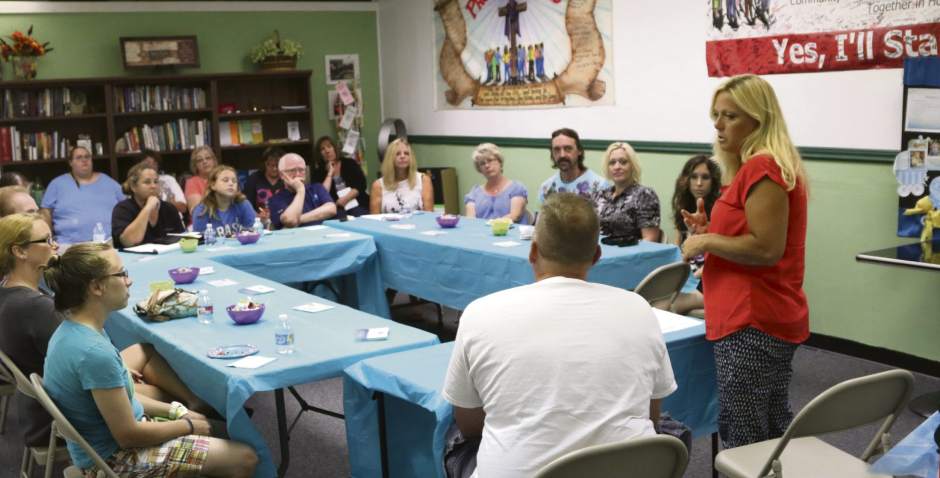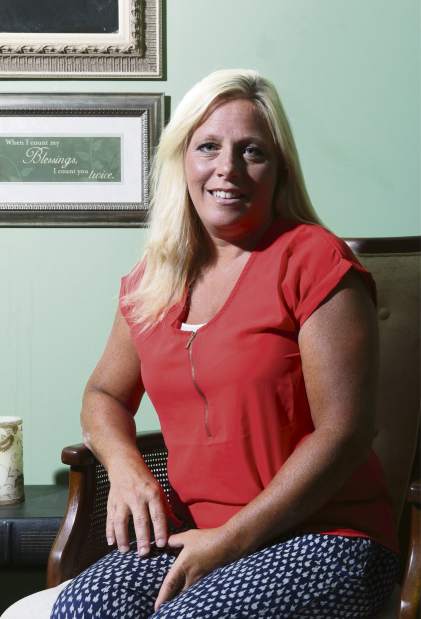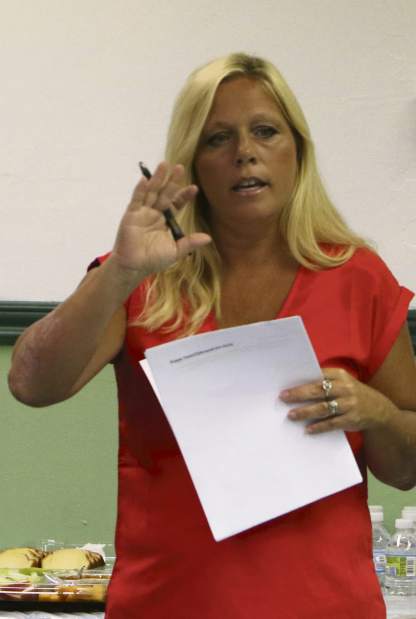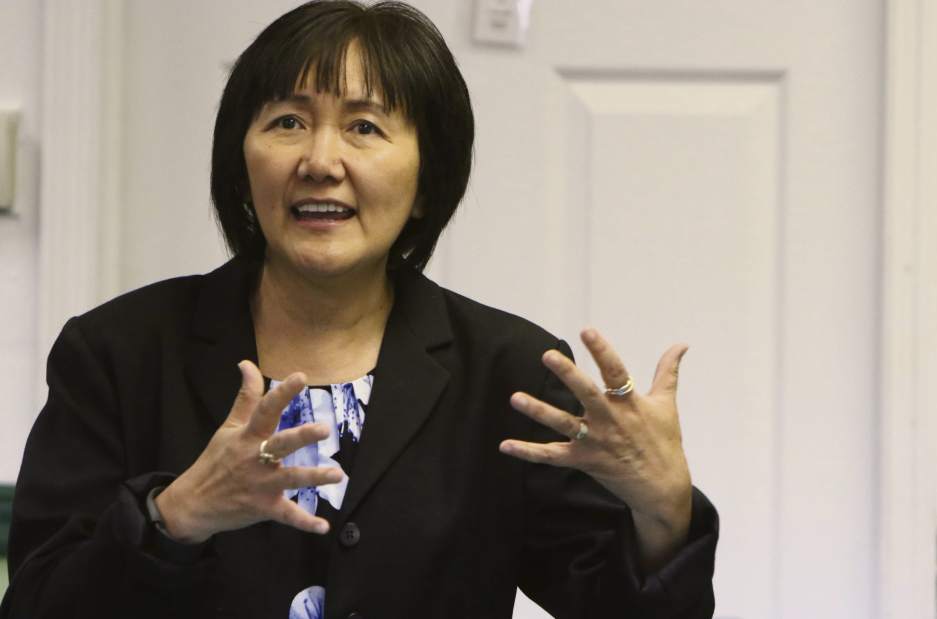Latrobe nonprofit director aims to help mothers, babies coping with drug withdrawal
She raised six children and worked in counseling, including addiction recovery, but Dawn Hennessey was unprepared to meet the needs of an infant exposed to opioid drugs in the womb.
Hennessey is the legal guardian of a boy born with neonatal abstinence syndrome, a drug withdrawal condition. NAS babies' symptoms can include tremors, feeding and sleeping problems and constant crying, according to the National Institutes of Health.
“We had no idea what we were getting into. We pretty much held him all night. He was up every 20 or 30 minutes. He shook. He cried,” she said. “I really did a lot of praying over him. I was scared. I didn't understand what NAS was.”
The experience inspired Hennessey, executive director of Latrobe's nonprofit human services organization Faith Forward, to found Angel Arms Infant Recovery Homes. She hopes to open residential sites in Latrobe and Greensburg for drug-exposed newborns.
“Our goal is to be able to unite mom and baby together,” she said.
Hennessey's plans for the program include:
• Counseling, visitation and resources for mothers/caregivers.
• Nursery accommodations for up to 12 infants at a time for up to nine months, or until withdrawal is resolved.
• Collaboration with community service organizations.
• A center director, on-call registered nurse and trained volunteer “snugglers.”
“At this point, we are a private program, not state-funded or licensed. We won't be providing foster care,” she said.
Funding sources would be grants and donations, with no private or public insurance sought beyond the child's own health coverage.
Angel Arms operators hope a house will be donated for its first site, Hennessey said.
She hopes to accept children discharged after hospital weaning, likely through word of mouth or physician referral.
While a voluntary program, mothers or guardians would be asked to sign over temporary guardianship to Angel Arms.
“We would have to have a legal document. We will be taking full responsibility for these babies,” Hennessey said.
Shara Saveikis, Westmoreland County Children's Bureau administrator, said that in 2015, 97 infants were referred to the agency after testing positive for drugs.
Support and treatment are available for mother and child, she said, with placement outside the family as a last resort.
Amy Medved, neonatal nurse practitioner at Excela Health Westmoreland, said about 1,700 babies are delivered at the hospital each year. Infants born to addicted mothers typically fill two of the six beds in the special care nursery, she said.
Those who require morphine to wean, whether from their mother's methadone treatment or other drugs in their systems, can be hospitalized from 10 days to six weeks.
Parental visitation is encouraged, and information about early intervention resources is provided. Most parents eventually take their babies home, Medved said.
“I think we do need more services for these families in the community,” she said.
Some symptoms can linger for three months after discharge, and parents may not have the necessary coping skills, Medved said.
“I think a lot of (Angel Arms') concepts have an excellent basis. I'm not sure as far as the exact model they have chosen. Separating the family unit for that extended period of time — I'm not sure how moms will feel about that,” Medved said.
Latrobe pediatrician Christine Florendo spoke in support of Angel Arms' efforts at a recent public meeting held by Hennessey.
NAS babies have to be monitored for weight gain and developmental delays, she said.
They can require constant holding and rocking. They also need the mental stimulation of caregivers talking and reading to them, Florendo said.
Hennessey said the planned homes could be a “piece of the puzzle” among other service providers.
“We are not the solution, but we might be a part of it,” she said.
Mary Pickels is a Tribune-Review staff writer. Reach her at 724-836-5401 or mpickels@tribweb.com.




